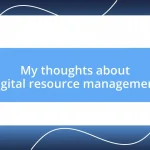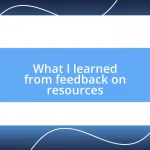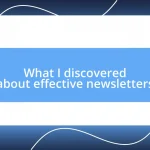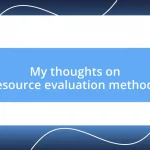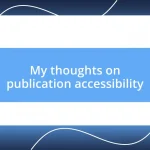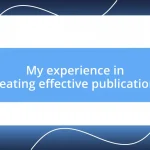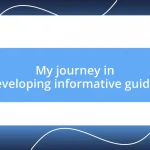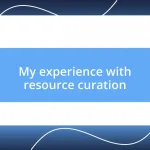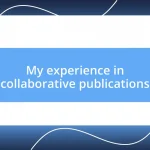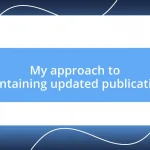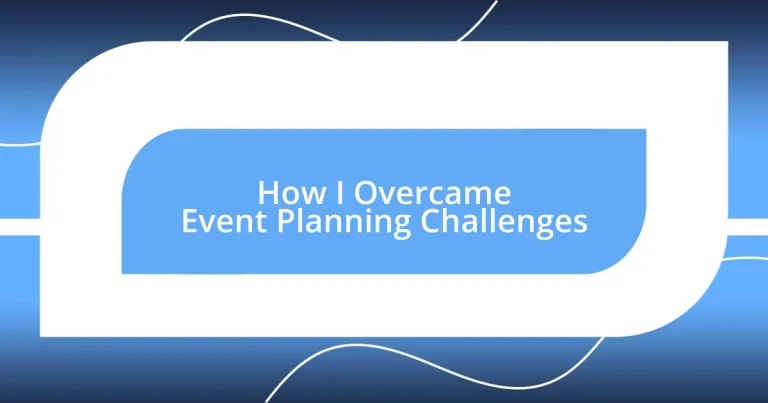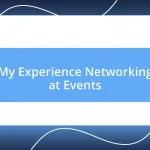Key takeaways:
- Effective event planning requires strong time management, budget management, and vendor coordination skills, alongside assessing personal strengths and weaknesses.
- Leveraging technology enhances organization, guest engagement, and overall event success; tools like online management platforms and social media are invaluable.
- Continuous improvement is achieved through evaluating event outcomes, gathering feedback, and reflecting on past experiences to make informed adjustments for future events.
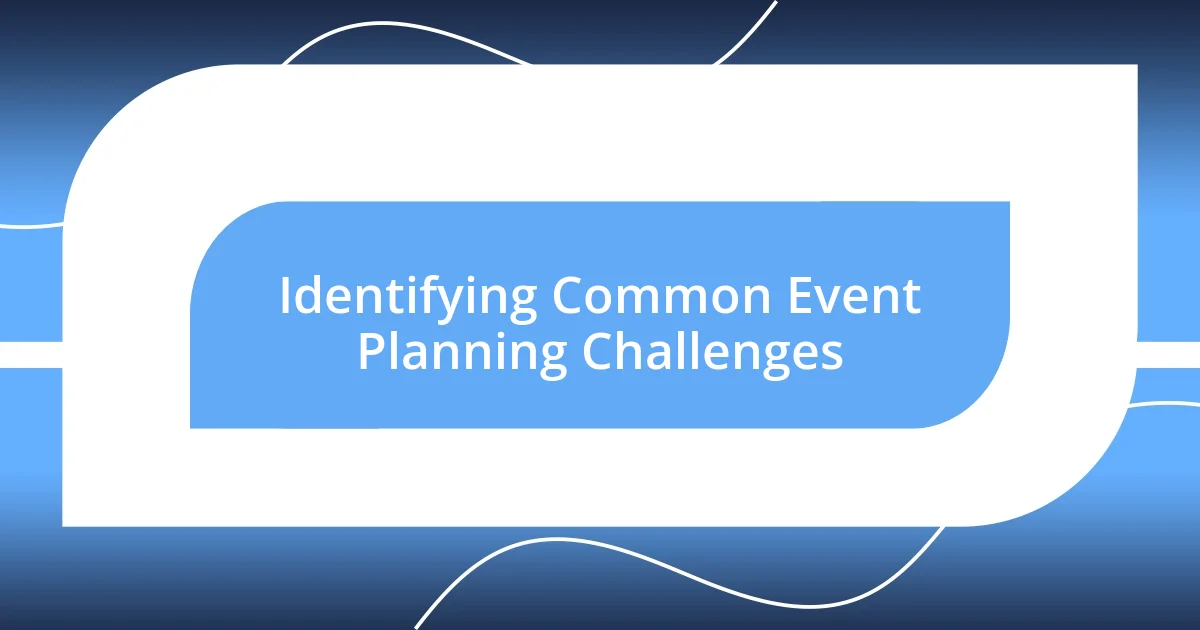
Identifying Common Event Planning Challenges
When I reflect on my own experiences, one of the most common challenges I faced was time management. It often felt like there were never enough hours in the day to tackle every detail. Can you relate? Balancing the myriad of tasks can easily overwhelm even the most organized planner.
Budget constraints are another hurdle that many event planners encounter. I remember a particularly ambitious event where we had to stretch every dollar. It forced me to think creatively, but I often felt the pressure of having to make tough choices between quality and cost. Isn’t it frustrating when your vision clashes with financial realities?
Lastly, coordinating with vendors can be a true test of patience. There was a moment when I found myself backtracking due to a miscommunication with a catering service, which affected the entire event timeline. Have you had similar experiences? It’s in these moments that our resilience is truly tested, and it makes all the difference in how we approach planning future events.
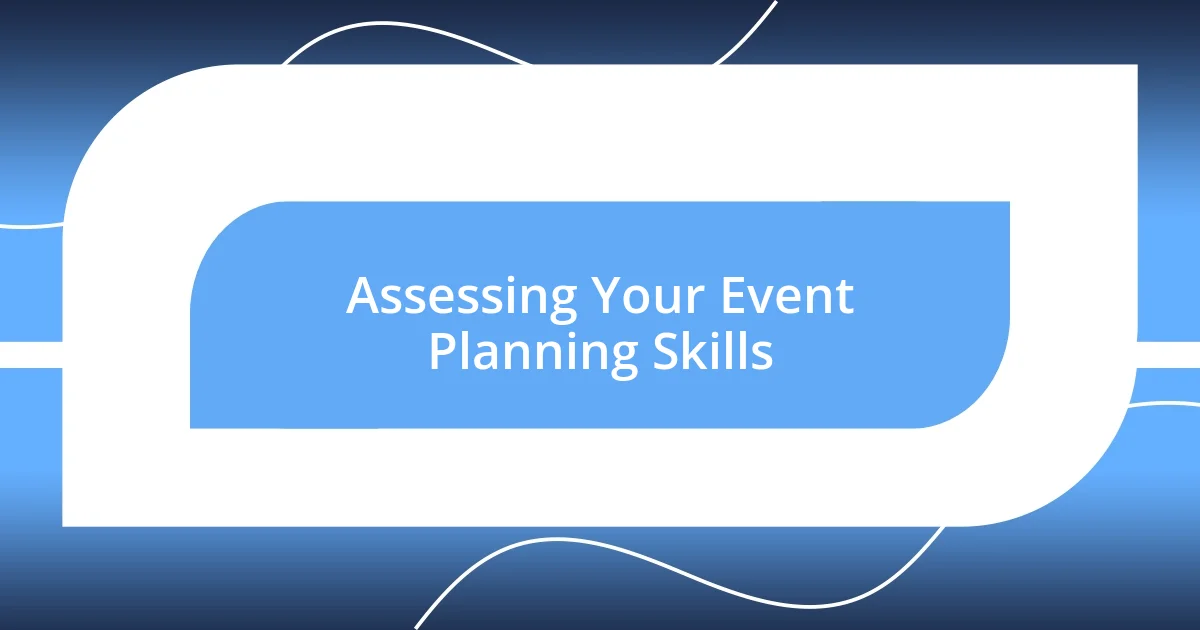
Assessing Your Event Planning Skills
Assessing your event planning skills is crucial to identifying areas for improvement. I often take a moment to evaluate my strengths and weaknesses in this line of work. For instance, I realized I excel at creative problem-solving, which has helped me a lot during challenging situations. On the flip side, I found that I really need to work on my negotiation skills with vendors; sometimes, I feel like I let opportunities slip through my fingers.
Another aspect I focus on is feedback from colleagues and clients. Early in my career, I would shy away from seeking constructive criticism, but I learned that it’s an invaluable part of growth. After a few events, I started asking for feedback, and the insights were eye-opening. Clients appreciated having their voices heard, and it also provided me with practical tips that shaped my planning style significantly.
Lastly, I assess my organizational tools and techniques. I’ll never forget the relief I felt after I switched to a digital project management tool. It allowed me to keep track of multiple tasks without feeling overwhelmed. My planning became smoother, and I felt more in control. If you haven’t evaluated your own systems recently, I highly recommend it—small changes can lead to major improvements in how you manage events.
| Skill | Self-Assessment |
|---|---|
| Creative Problem-Solving | Strong |
| Vendor Negotiation | Needs Improvement |
| Receiving Feedback | Improving |
| Organizational Tools | Effective |
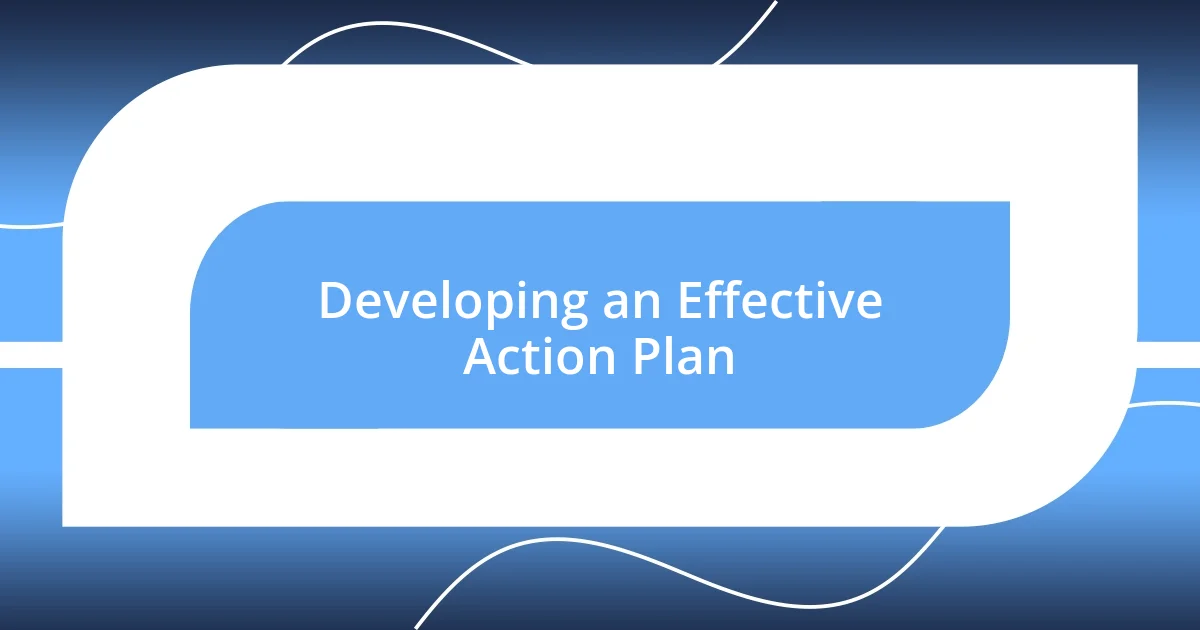
Developing an Effective Action Plan
When it comes to developing an effective action plan, I’ve found that breaking it down into smaller, manageable tasks is key. During one complex event, I created a detailed timeline that outlined every step from start to finish. This approach not only kept me focused but also provided a clear roadmap that prevents last-minute surprises. I still recall the sense of relief I felt when I was able to check off completed tasks, watching my plan come together piece by piece.
To create a robust action plan, I recommend considering these essential elements:
- Define Objectives: Clearly outline the goals of your event to ensure everyone is on the same page.
- Assign Responsibilities: Designate specific roles to team members, which fosters accountability.
- Set Deadlines: Establish due dates for each task to maintain a steady pace and avoid a chaotic rush.
- Monitor Progress: Regularly review the plan to adapt to any changes or challenges that arise.
- Evaluate and Adjust: After the event, take time to assess what worked and what didn’t, allowing for continuous improvement.
I often revisit this plan when tackling new projects, as it reminds me of my growth and the lessons learned. It’s a comforting feeling, knowing that I have a solid framework to rely on, even amidst the chaos of event planning.
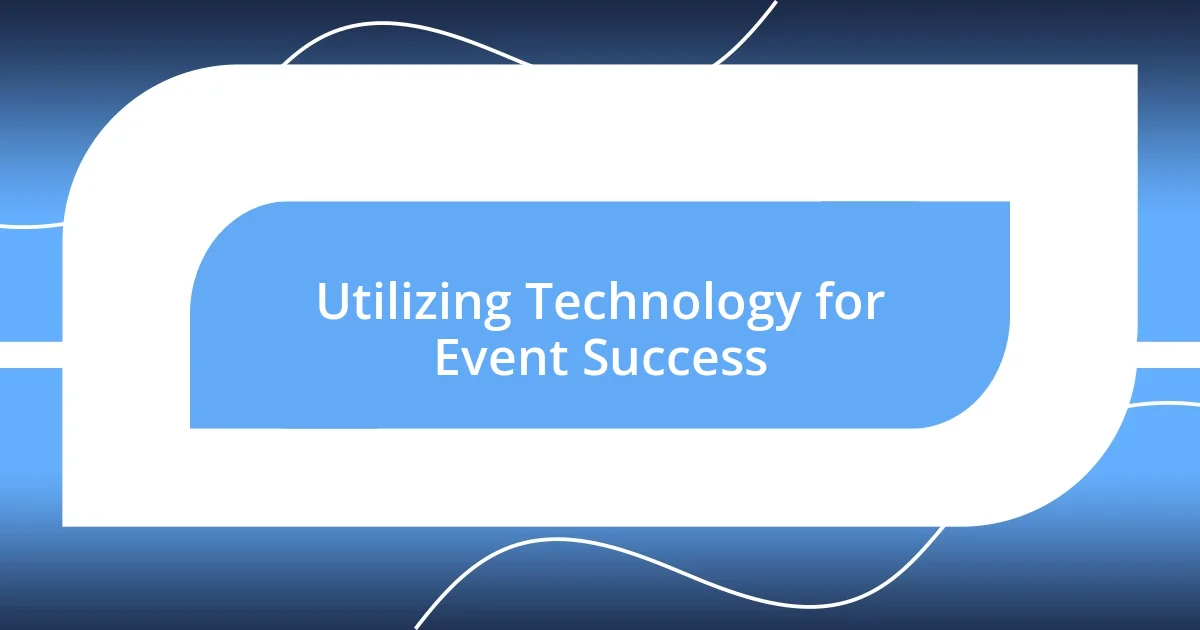
Utilizing Technology for Event Success
In today’s fast-paced world, leveraging technology can genuinely make or break an event. I vividly remember a time when I struggled with managing guest lists and RSVPs manually. It was a headache! After adopting an online event management platform, my stress levels dropped dramatically. Suddenly, everything was organized in one place, and I could easily track responses. Have you tried using technology for managing your events? If not, it might be time to explore.
Social media has also played a pivotal role in my event promotion strategies. I often create event pages that allow me to connect with potential attendees in real-time. Last year, I launched an invitation on Facebook, and within hours, I saw interactions that boosted my event’s visibility exponentially. Seeing attendees eagerly sharing their excitement is a feeling that really energizes me. It makes me wonder—how often do we underestimate the power of engagement through social platforms?
Lastly, I’ve come to appreciate tools like live polling and audience interaction apps during events. At a recent conference, I used a live Q&A tool, and I can honestly say it transformed the way participants interacted with speakers. The energy in the room shifted as more people felt empowered to communicate their thoughts and questions. It made me realize that technology doesn’t just serve a functional purpose; it can also enhance connection and community. So, why not give it a go? You might just find that technology opens up new channels for engagement and success in your event planning.
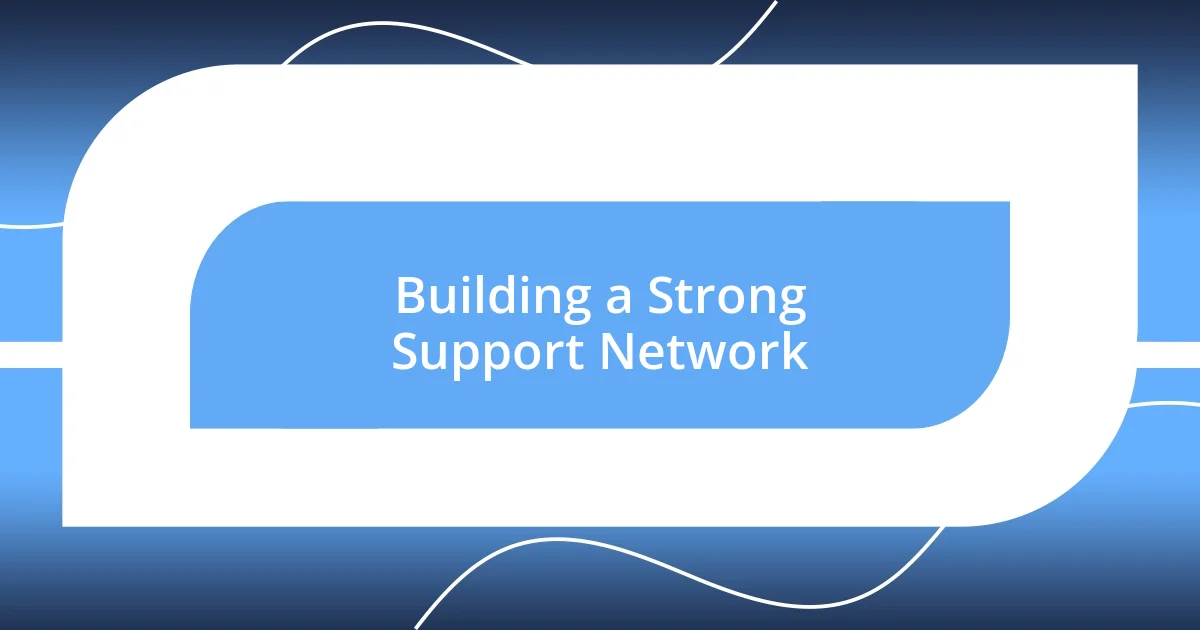
Building a Strong Support Network
Building a strong support network can truly make a world of difference when tackling the challenges of event planning. I remember when I was responsible for organizing a large community festival, and I quickly realized I couldn’t do it all myself. Reaching out to friends and colleagues not only eased my workload but also introduced new ideas and perspectives that enhanced the event. Have you ever noticed how collaboration can spark creativity? Sometimes, just sharing the weight with others can lead to innovative solutions.
In my experience, forming genuine connections with vendors, volunteers, and attendees has been invaluable. At one event, one of my volunteers suggested a unique layout that I hadn’t considered. What started as a simple brainstorming session turned into a pivotal moment that improved attendee flow and overall satisfaction. It’s amazing how, when you invite input from your support network, you create a sense of ownership among all involved. This not only boosts morale but cultivates a shared passion for the event, don’t you think?
Additionally, I’ve learned that building relationships extends beyond the event itself. Regular check-ins with my network have allowed me to foster lasting partnerships that I can rely on for future projects. Recently, a vendor I worked with reached out to offer their services at a discounted rate for an upcoming event, simply because we had cultivated mutual respect and trust. I can’t stress enough how invaluable it is to invest time in nurturing these connections. After all, the event planning journey is often smoother with colleagues who are just a call or message away, ready to lend support when needed.
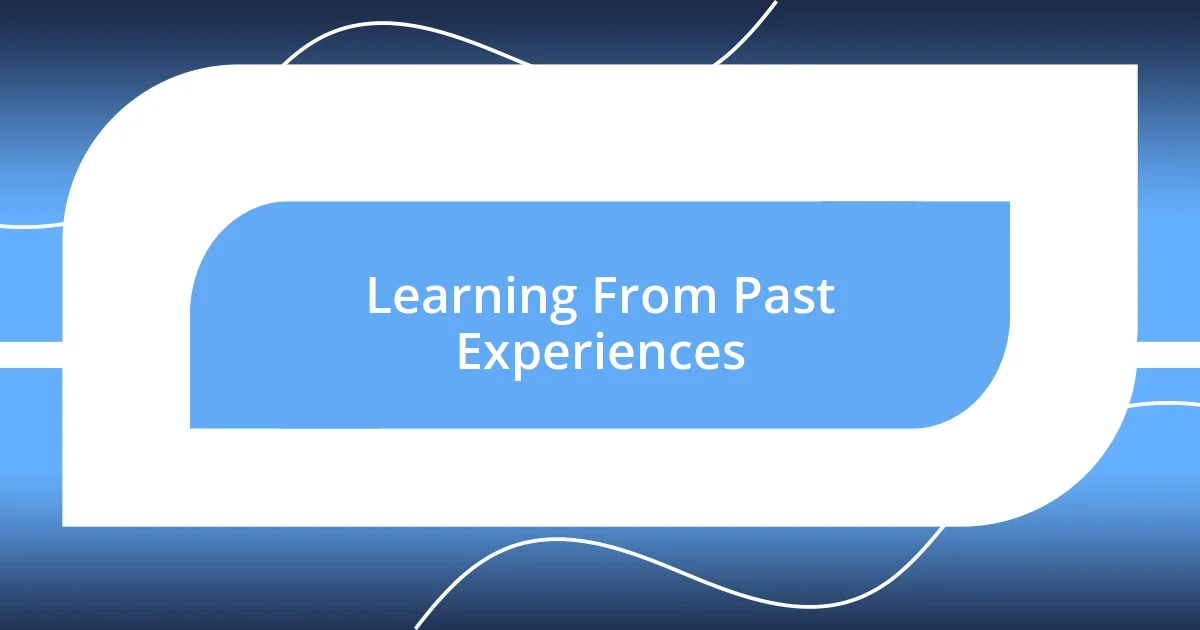
Learning From Past Experiences
Reflecting on past experiences has been a game-changer for me in event planning. I can recall a particularly chaotic event where I underestimated the importance of time management. I had to juggle speakers, catering, and attendee needs all at once. It was overwhelming! After that experience, I implemented a detailed timeline for all my events. Now, I find that allocating specific time slots for each task helps me manage my energy and reduce stress. Have you ever experienced a moment where you realized a small change could yield big results?
One powerful lesson I learned was the value of feedback. After my initial event flopped in terms of engagement, I reached out to attendees to understand their perspectives. Their insights were eye-opening! They shared preferences for interactive elements, which I had overlooked. This conversation not only helped me to create more engaging events in the future but also opened the door for stronger connections with participants. Isn’t it fascinating how listening can transform your approach?
Another significant takeaway for me has been the importance of adaptability. I distinctly remember an event when a sudden storm caused us to move everything indoors last minute. Initially, it felt like a disaster, but I quickly realized that this change forced me to reconsider our setup and ultimately led to a cozy, intimate atmosphere that everyone appreciated. This taught me that when things go awry, it’s essential to embrace those moments as opportunities for creativity. How often do we miss the chance to innovate because we’re fixated on a plan?
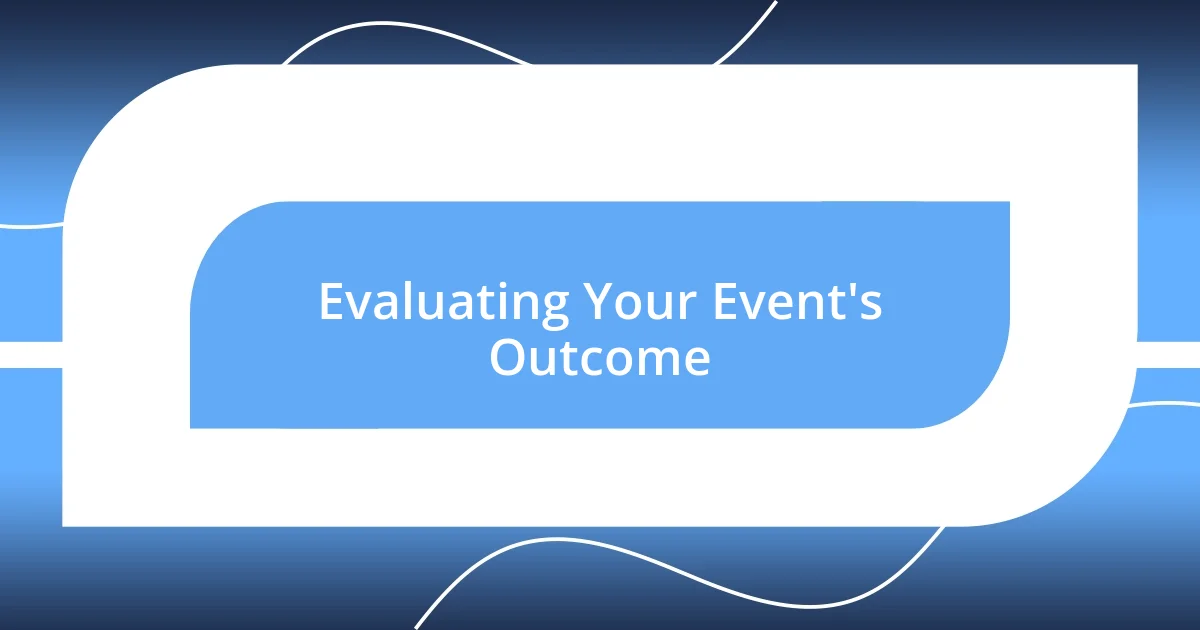
Evaluating Your Event’s Outcome
Evaluating the outcome of your event is crucial for continuous improvement. I remember wrapping up my first charity gala and feeling both relief and curiosity. Did we meet our goals? To answer that, I created a simple feedback form for guests, which proved invaluable. Many shared insights that I hadn’t considered, like the timing of speeches or the variety of food options, which helped me refine future events significantly.
I’ve also found that measuring quantitative data, such as attendance numbers and funds raised, is essential. At one event, I reached out to sponsors post-event to assess their satisfaction levels. Surprisingly, many appreciated the visibility they gained and were eager to participate again. This helped me not only build stronger partnerships but also set measurable success criteria for my future planning. Isn’t it interesting how numbers can tell a story of their own?
Beyond feedback, I think it’s essential to reflect on your own feelings and observations during the event. At a recent workshop, I couldn’t shake the feeling that something was off, despite positive comments from attendees. Later, I realized it was a lack of energy in the room—something not captured through surveys. This taught me to trust my instincts along with the metrics. How often do we overlook our own perceptions in favor of raw data? It’s this blend of personal reflection and formal evaluation that truly leads to transformative experiences in event planning.
